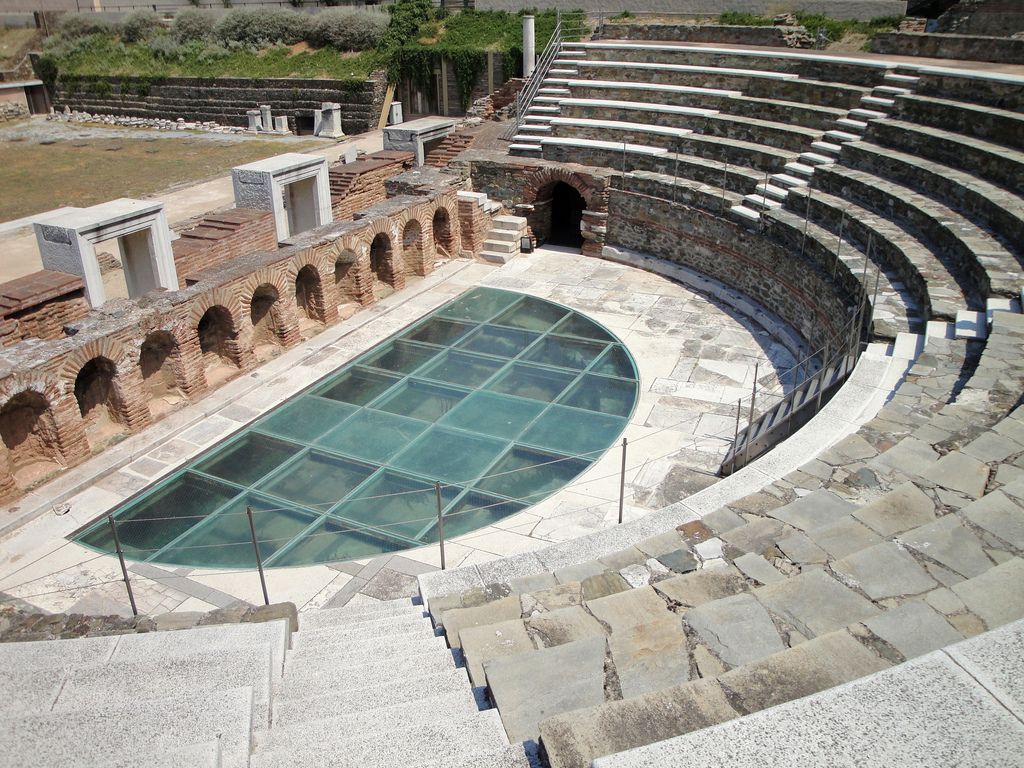The Way to get to the top is to
get off your bottom.
The soul of a lazy man desire, and has nothing;
but the soul of the diligent shall be made rich.
– Proverbs 13;4 –

The Way to get to the top is to
get off your bottom.
The soul of a lazy man desire, and has nothing;
but the soul of the diligent shall be made rich.
– Proverbs 13;4 –

The secret of success is
to do the common things
uncommonly well.
Do you see a man skilled in his work? He will serve before kings;
he will not serve before obscure men.
– Proverbs 22:29 –

“The person
who has a firm trust in
God is
powerful in His power,
wise by His wisdom,
happy by His happiness…”

“Today
is the tomorrow
we worried about
yesterday…”

“Peace I leave with you;
my peace I give you. I
do not give to you as the
world gives. Do not let
your hearts be troubled
and do not be afraid.”

“Desire
only the will of God;
seek Him alone,
and you will
find peace.”

“For what is our hope, or joy, or crown of rejoicing?
It is not even you in the presence of our Lord Jesus Christ
at His coming? For you are our glory and joy”
– 1 Thessalonians 2:19-20 –
Paul’s great hope was to be united with the saved of all times and share eternity with them. His heart was filled with this hope. He rejoiced in these believers that he dreamed of presenting to the Lord on the final day, as treasures rescued from the war of sin. Those faithful before the throne and before the King would be his glory.
A detail, which is not minor, enhances this story: Paul’s joy and that of Christ are joined together. Isaiah 53:11 says that one day Jesus will see the fruit of the affliction of His soul and be satisfied. Both the Bread of Life and the distributor of bread are complete in the salvation of the people.
This desire of the apostle to visit his converts would strengthen his faith and commitment to the truth, and give him more courage to face persecution. How much encouragement was produced in those believers to know that they were the hope, the crown, the joy, and the glory of the apostle.
In those days there were two recognized types of crowns. One was the royal crown, symbol of authority and majesty. Another was an Olympic crown, a symbol of victory and celebration that was awarded to the victors in the games held by the ancient Greeks in the city of Olympia. This second crown consisted of a crown and laurel branches.
Paul does not refer here to the crown of righteousness that the Lord will give at His cominig but to the wreath of victory. Paul’s crown is a wreath of laurel for the victory of his converts.
“We are permitted to unite with Him in the great work of redemption and to be sharers with Him in the riches which His death and suffering have won” (Thoughts from the Mount of Blessings, pp. 89-90). “The evidence of his apostleship is written upon the hearts of those converted, and is witnessed to by their renewed lives. Christ is formed within, the hope of glory” (The Acts of the Apostles, p. 328).
If our wreath of glory is the honor of saving people for Jesus,
soon the Lord will change the perishable and fragile laurel
for the everlasting and eternal crown.

“As you know how we exhorted, and comforted,
and charged every one of you, as a father does his own children”
– 1 Thessalonians 2:11 –
With the faithfulness of an administrator, Paul knows that the message is God’s property. It doesn’t belong to him, it has been entrusted to him on loan. That is why he defends, protects, and makes proper use of it. It is not money to guard or a treasure to hide, it is necessary to invest the capital, to produce, and to make it grow.
Paul knows he does not own it; he is an administrator. He knows he is accountable. They treated him as a mercenary and thought he wanted to make money from that message, but he is certain before God and men to be a faithful administrator of all of God’s message.
Paul was a spiritual father to the believers and a good father cares, sustains, and exemplifies. Paul lived a holy life, righteous, integrated, irrepressible, always close to people. He exhorted, encouraged, and comforted. Spiritual childeren need an example to follow rather than a dissertation to listen to.
In 1 Thessalonians 2:7, Paul says that he had tenderness for the people and cared for them just as a mother does her children. Paul did not leave them in care of others. The same one who preached to them continued to pray for them, and now writes to them, visits them, and devotes his time and energy. He was loving, patient, and persevering.
This is a story of a mother that was a fighter. She left Italy at the age of fourteen, escaping war, and made her way in life, without any studies, without knowing the language, but knowing God. At the factory where she worked, the would give her cookies at lunchtime. Instead of eating them, she brought them home for her children. Her children have seen her work even helping her husband building their house.
Now, let’s dwell on the following. She would take her eldest son by the hand every day to his school, that was about seven blocks from their home. She did it until one day when she helped her son cross the street, placed him on the sidewalk that went straight to school, and with no other streets to cross, she said: “Go ahead on your own. I’ll be watching.”
And so it went. The child walked on his own knowing that he was doing so under the watchful eye of his mother. Every time the kid turned his head, there she was, accompanying him with her gaze…
With the faithfulness of an administrator,
the protection of a father, and the love of a mother,
let us walk to eternity under the watchful eye of God.

“For you yourselves know, brethren,
that our coming to you was not in vain”
– 1 Thessalonians 2:1 –
The preaching in Thessalonica occurred shortly after Paul and Silas were physically mistreated in Philippi. The punishment had been unfair. Moreover, Paul was a Roman citizen and, as such, should not have been punished.
That is why he says that they had boldness and trust in God by proclaiming the gospel there. Despite the challenge of preaching, the apostle was so interested in pleasing God, that he fulfilled the mission by taking little regard of others’ opinion of himself. This does not mean that Paul did not respect people’s feelings. What he means is that his goal was not to please men and conquer them by being cunning, rather to have God’s approval and to bring people closer to the Master. Hence, he did not flatter people, he did not seek praise from people. His business was to present the gospel of God.
Paul also writes that he proposed to earn his livelihood, so that the gospel would be preached free of charge. With that, no one would have reason to accuse the apostle of preaching for personal gain, for he worked not to be a burden on his congregations.
The fact that Paul emphasizes the relevance of the Word of God as an essential element of the preaching and transformation of people deserves to be highlighted. Paul was rekindled by the Word of God. Being a preacher of the Word requires a correct ethical stance, for preaching occurs not only because of the content presented, but also because of the demonstrated posture.
It is said that while Paul boldly proclaimed the gospel in the synagogue of Thessalonica, rays of light were poured out. “Paul was a believer in the second coming of Christ; so clearly and forcibly did he present the truths concerning this event, that upon the minds of many who heard there was made an impression which never wore away” (The Acts of the Apostles, pp. 228-229).
Paul was daring and his mission was above his function. God was above the human being. The Word was above his word. His fellow man came before him. The iron chains that bound his feet were the forestate of the gold crown that would adorn his head.
Lettie Cowman says that a good Roman soldier was the one who,
after receiving a superior’s order that implied danger, replied:
“It is necessary that I go,
not that I live.”

“Paul, Silvanus, and Timothy, to the church of Thessalonians
in God the Father and the Lord Jesus Christ: Grace to you
and peace from God our Father and the Lord Jesus Christ”
– 1 Thessalonians 1:1 –
Thessalonica was the capital of Macedonia. It was located on the peninsula of the Thermaic Gulf. The Via Egnatia that linked the East and Rome, passed through Thessalonica. The favorable location and the excellent port made it a commercial and tourist center of great importance. For that reason, it had a large concentration of Jews and a synagogue.
In chapter 1, Paul shows concern with the Thessalonians through thanksgiving and prayer, expressing certainty about the sincerity of faith and conversion of the Thessalonians.
Paul mentions Silvanus, who is Silas himself, his mission and prison companion, and Timothy, who is a friend and young evangelist.
The apostle is affectionate with the brothers and sisters, and emphasizes their active faith, dedication, and firmness in hope in Christ. An important aspect is that the Thessalonians have become imitators of Paul, to the point of receiving the Word willingly, even in the face of suffering. And because of this confident and cheerful stance, the Thessalonians became examples with reference to the firmness with which they accepted Christianity and the zeal with which they received the teachings.
Thus, they became an example to others after conversion, which highlights the high quality of their Christian witness. The abandoned a life of idolatry, as they were sincerely and wholly converted to God, putting all their hope in Christ.
True conversion is one that leads us to abandon every evil path, every wrong teaching, and leads us to a life of centralized conviction in the Word of God. Converted Christians are so impactful that their good example influences other people.
It may be that some may not be able to indicate the exact timing and place of their conversion, nor explain the circumstances by which they were brought to that time and place, but their testimony will be clearly demonstrated.
“A change will be seen inthe character, the habits, the pursuits.
The contrast will be clear and decided between what they have been
and what they are. The character is revealed, not by occasional good deeds
and occasional misdeeds, but by the tendency of the habitual words and acts”
(Steps to Chirst, pp. 57-58).
Therefore today, “before the sun goes down, think of an act that leads to someone
else’s conversion and execute it with all your might” (Spurgeon).